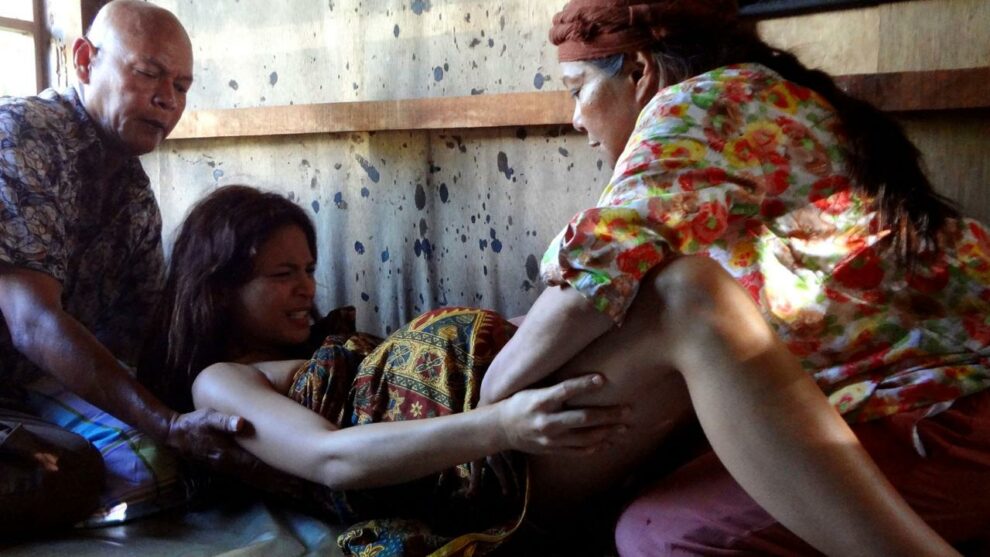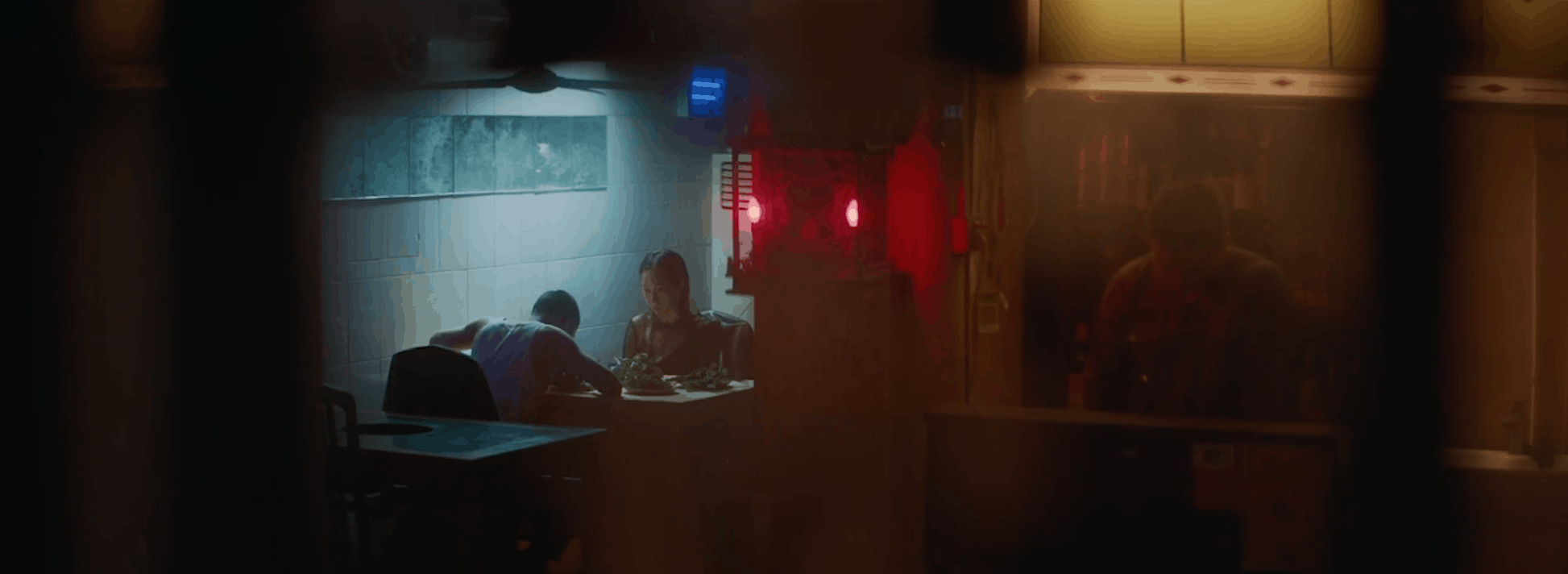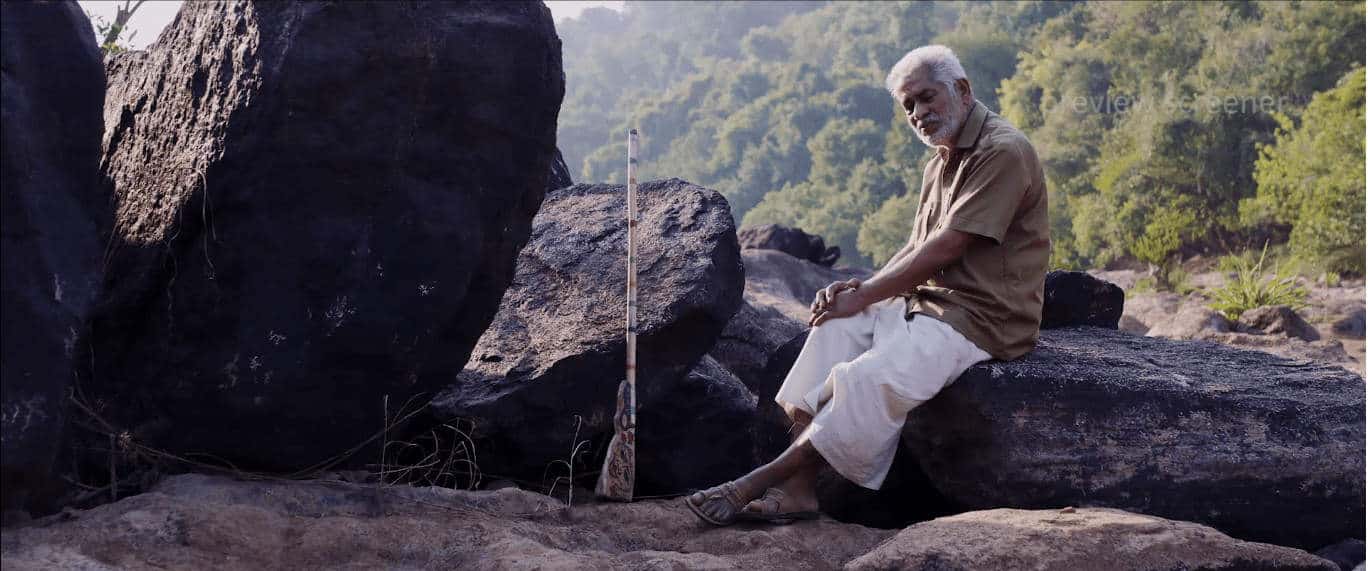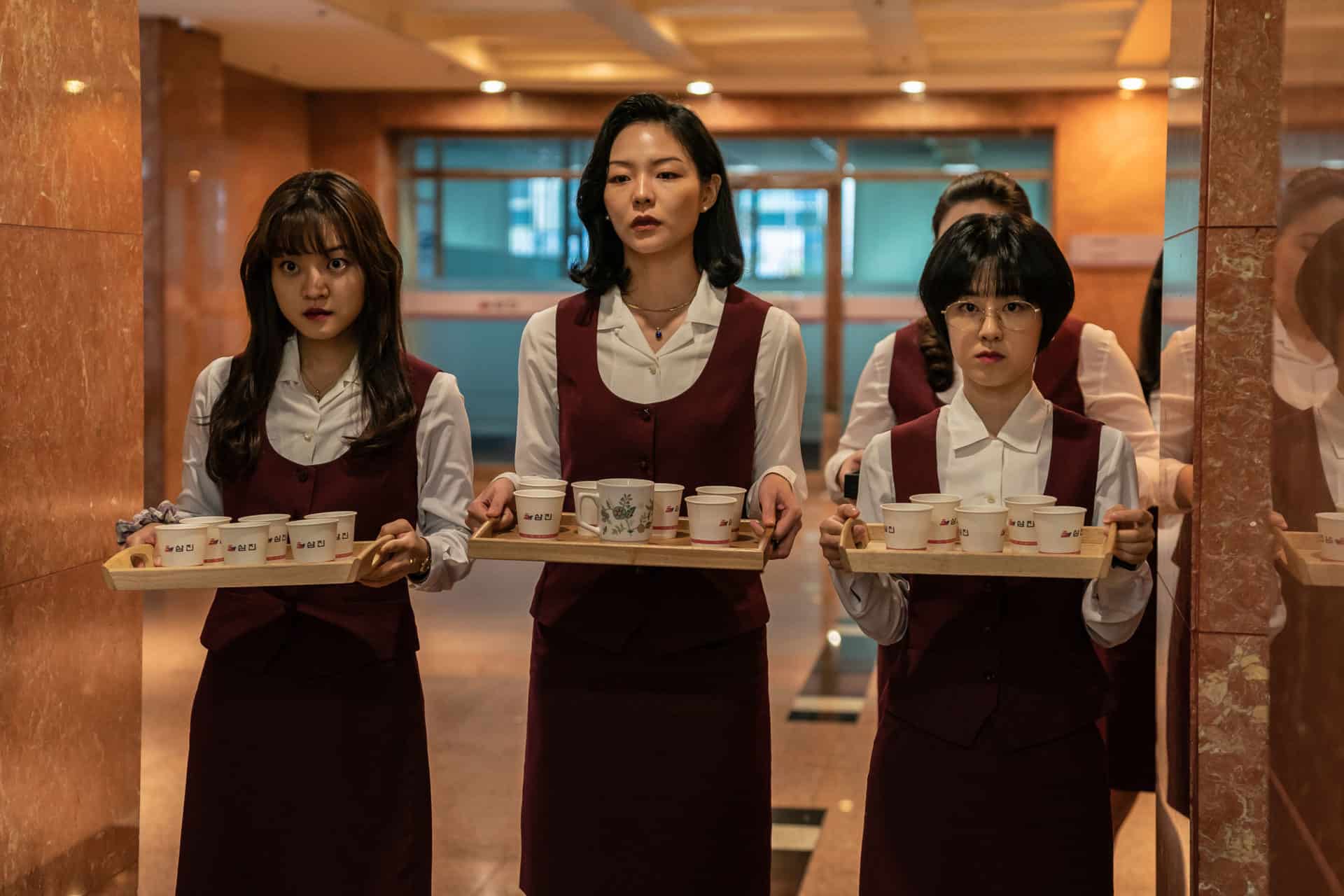Competing for the Golden Lion at the 69th Venice International Film Festival, “Thy Womb” eventually won three special prizes by other Italian film groups, while taking up Metro Manila Film Festival by storm with 7 awards, among a number of others from festivals all over the world.
After a rather shockingly realistic birth scene (which actually also took place in another of Mendoza's movies, “Captive”), we are introduced to the two protagonists, Shaleha, a middle aged Tausug woman who works as a midwife for the small Muslim community, she and her husband, fisherman Bangas-An inhabit. Soon we learn the irony in her life, as, despite constantly delivering babies, she cannot have children herself, a point of friction in the otherwise calm life she shares with her husband. In an act of rather altruistic love (or, as she says, she would prefer choosing instead of having him cheat on her) she decides to be the one to search for a new wife for Bangas-An, who will eventually give him the child he so much longs for. The rest of the film unfolds as a kind of road movie, with the search for a new wife being juxtaposed with everyday life and the customs of the area.
Through a rather brutally realistic approach, Brillante Ma Mendoza directs a film that portrays life in a very poor area, (the island of Tawi-Tawi) focusing mostly on the marriage traditions, which are actually arranged between elders and include dowries of cash, whose amount depends on the “quality” of the bride, as we see in one instance when the father of the bride mentions the fact that his daughter is educated, and therefore a higher amount is demanded. Apart from what happens before the wedding, Mendoza also portrays an actual ceremony, with the colorful clothes of the bride and groom, their dancing and the music taking center stage. Marriage notwithstanding, the movie also focuses on the fishing habits of the locals, the selling of bananas, their religious customs, and in general, their everyday life, which Odyssey Flores's handheld, frequently shaky camera, captures with documentary-like realism.
Despite the rather colorful images, mostly due to the way the locals are dressed, “Thy Womb” is not exactly impressionable in its bulk, at least as a feature film. In order to mend that, Mendoza has masterfully included a number of scenes, mostly having to do with violence, that break the tempo in the most shocking, but also entertaining fashion. Apart from the initial one, the two scenes with gunshots, in a subtle comment about the violence that always seem to be there in Mindanao, the one with a the ox, which is saved just to be decapitated, and another scene of a birth, are definitely the ones that will stay in the mind of the viewer. Overall, however, the general approach could be described as of a realistic melodrama, with Mendoza handling the antithesis of the two quite artfully. Lastly, Kats Serraon's editing, along with the many changes of scenery, give a very welcome sense of movement and speed in an otherwise slow-burning movie.
Nora Aunor is one of the greatest Filipino actresses of all time, and she proves it once more as Shaleha, a woman who is struggling to achieve something that is essentially against her. The ending of the movie, and her reluctance, highlight her real feelings in the most eloquent but also subtle fashion, in yet another memorable scene in the movie. Bembol Roco as Bangas-An follows close behind (both metaphorically and literally in the film) with the way he is completely dependent on his wife for essentially everything, and his insistence to remarry making him seem both childish and quite likable at the same time.
Brillante Ma Mendoza's myth was built upon movies like this, particularly because he manages to combine realism, melodrama, and violence in the most artful fashion, in one of the best works of his significant filmography.
















